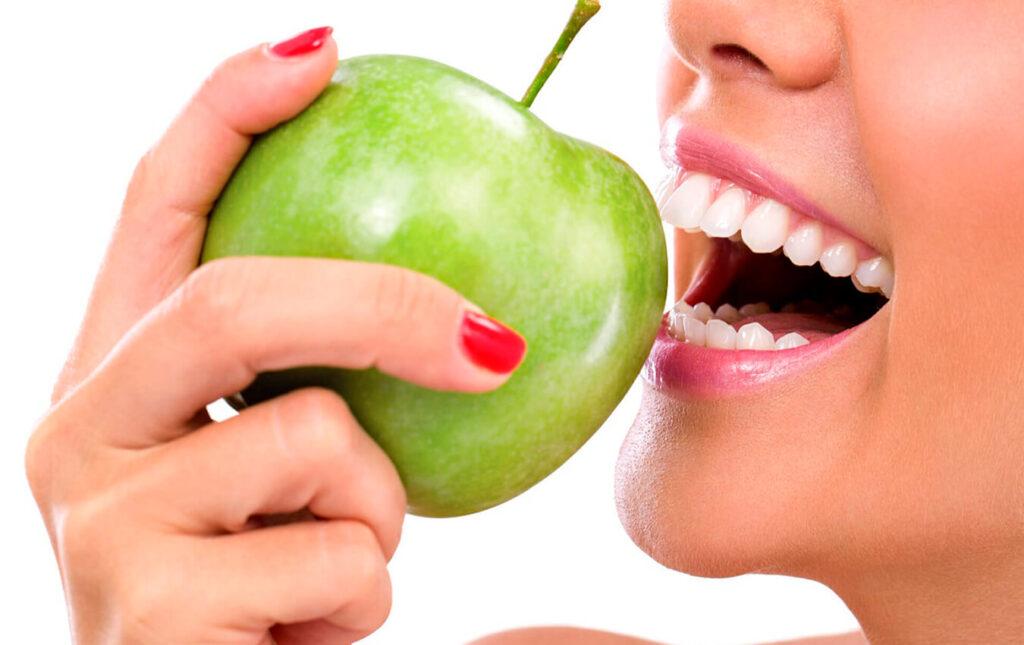
There’s a definite link between healthy teeth, oral health habits and the foods you eat. Any foods you eat and drink containing a high sugar content are converted to acids immediately by the bacteria in your mouth. The acids work on the tooth enamel, opening the way for cavities to develop. The more frequently you eat and the quality of the foods you eat and drink has a direct impact on your tendency toward developing tooth decay.
Good Food and Drink for Your Mouth
Foods that are rich in calcium and phosphorus are great for your teeth because they are said to protect tooth enamel. Both calcium and phosphorus are said to redeposit minerals into the teeth after acids work on the enamel.
It’s also good to eat crunchy fruits and vegetables with a high water content, since it seems to dilute the sugar in them. Eat foods that are acidic – citrus fruit, tomatoes, lemons – with a larger meal to reduce the effect of the acids.
Beverages that are especially good for you are water with flourides, unsweetened tea and milk. Actually, probably the very best thing you can drink, for both your health and your teeth is water. Keep sugary drinks to a minimum, especially if you tend to drink continually throughout the day because this would keep your mouth full of decay producing sugars. This includes soda pop, sugared tea, lemonade and coffee with sugar.
Foods That Are Bad for Your Teeth
Top of the list of baddies is hard candy, cake and pie, bread and muffins, cookies, chips and pretzels, french fries, bananas, and raisins and other dried fruits. All of these foods are either sticky substances that will cling to the teeth or have a lot of sugar. They provide a great breeding ground for bacteria. Also in the list of problem substances are cough drops, since they are meant to remain in the mouth for a period of time, again adding to the opportunity for the sugar in them to coat your teeth.
What About Sugar Substitutes?
Sugar substitutes actually are beneficial to your teeth because, while many look and taste like sugar, they are digested differently and don’t immediately turn to acid buy the mouth’s natural bacteria.
With foods labeled sugar-free or sugarless, there are no added sugars but they can still have natural sweeteners, like fructose, molasses, honey or rice syrup. These naturally sweet substances behave the same way that sugars do and have the same potential to create cavities.
What About Chewing Gum?
Unless you choose sugarless gum, chewing gum is a bad idea. It coats your teeth with sugar that stays, plus its sticky and stays on your teeth. On the other hand, chewing sugarless gum can really help your teeth avoid cavities because it can loosen food that is stuck between the teeth and neutralize the acids with the saliva that chewing gum stimulates. The sugar substitute xylitol, found in many types of sugarless gum, is believed to fight against cavities.

